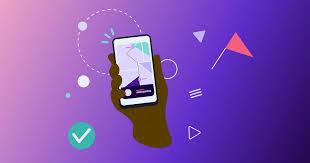Top 5 Accessibility Apps for Everyday Independence

2025 sees the launch of the first ever World Day for Assistive Technology.
Taking place on June 4th the day aims to raise awareness of the importance of assistive technology and the urgent need to improve access to it in low- and middle-income countries (LMICs).
Assistive technology (AT) refers to assistive products such as wheelchairs, eye glasses, hearing aids, prosthetic limbs and digital devices and their related systems and services that positively benefit a person's ability to interact with dailt environments and live healthier and more independent lives.
Top 5 Accessibility Apps for Everyday Independence (2025 edition)
Day-to-day accessibility tools, apps and platforms play a crucial role in helping disabled people live fuller, more independent lives. Here are five standout apps supporting accessibility in vision, hearing, communication, and more.
1. Seeing AI (Microsoft)
A free app developed by Microsoft, Seeing AI narrates the world for blind and visually impaired people. It reads text, describes people, recognises currency and products, and can even provide real-time guidance for navigating surroundings.
Best for: Blind and visually impaired people seeking greater independence in everyday tasks.
2. Be My Eyes
This app connects blind and low-vision users with sighted volunteers for visual assistance via live video. Whether reading a label, identifying an object, or navigating a public space, users get real-time help from people around the world.
Best for: Quick, human-guided support for daily visual tasks.
3. RogerVoice
A powerful app for the Deaf and hard of hearing community, RogerVoice transcribes phone calls into text in real-time. It also allows users to reply via voice or text, making traditional phone conversations accessible.
Best for: Enabling accessible communication through voice calls.
4. Voiceitt
Designed for people with speech impairments, Voiceitt uses AI to recognise and translate non-standard speech into clear audio or text. It helps users communicate more effectively with others, including smart assistants like Alexa.
Best for: Dysarthria, cerebral palsy, or other speech challenges.
5. Google Lookout
Similar to Seeing AI, Google Lookout uses the camera to provide information about the environment. It can read documents, identify objects, scan barcodes, and provide spoken feedback for better navigation and understanding.
Best for: Blind or visually impaired Android users, seeking real-time scene interpretation.
What do you think, did we miss a good one?
Got a recommendation for an app or platform we've missed? We're continually refreshing this list so drop an email to info@everybodymoves.org.uk and we'll be happy to check them out!




